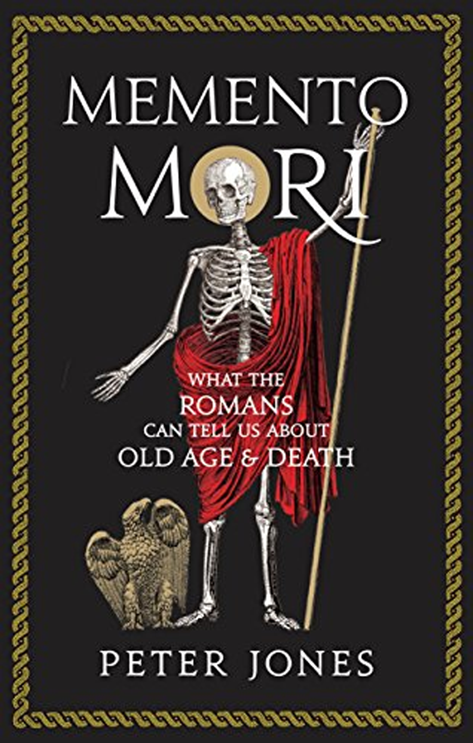
Peter Jones has long been a popularising champion of the Classics and the Classical world; so he was likely to get round to themes of the ancients on the subject of death and dying, one day.
I am not at all sure, however, that the world desperately needs his latest offering. It begins (‘Lifespan’) with a hotch-potch of statistics about life expectancy then and now. While it is genuinely interesting to read of Ulpian – a Roman lawyer, 170-223 CE – and his practical life table, the sections on the Athenian political reformer Solon and Hippocrates of Cos must have strayed in from another publication. Other Greeks who make an appearance in this volume – subtitled ‘What the Romans can tell us about old age and death’ – include three Homeric heroes, Pythagoras, Aristotle (quite a lot), Socrates and Sophocles.
On the plus side, Cicero quite naturally gets a good shout; and it will be useful for non-Classicists (or those just starting out) to be provided with a summary of and some commentary upon the De Senectute. The quintessential Romanness of Cicero's Cato is demonstrated by such quotations as ‘Age is respected if it actively defends itself, keeps a firm grip on its entitlements, is subservient to no-one and maintains control over its family to the very last breath’ and the salutary opinion – still surely applicable today – re acquisitiveness in old age: ‘Can anything be more ridiculous than a traveller needing more provisions, the closer he is to his destination?’
The best chapters are on ‘Death and Burial’ and ‘Epitaphs and the Afterlife’. But even in the latter, the author suddenly throws in two pages about Odyssey Book 11 – to which perhaps a brief reference could have been made in the ensuing and appropriate passage about Aeneid book 6. We then get a section on Plato's Republic and the myth of Er the soldier. Er……..indeed.
‘Romans never imagined they could “fight” death. They dealt with it by facing the hard facts of the real world. Modern man tries to escape them.’ Fine: but then Jones goes on for several pages in this vein without really adding anything to the foregoing. He might do better to stick to his always readable and thought-provoking ‘Ancient and Modern’ column in The Spectator, where there is a word limit.


